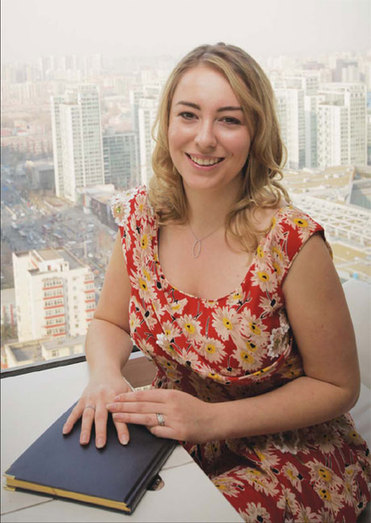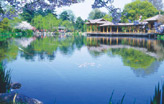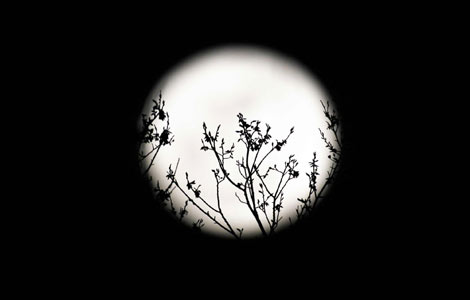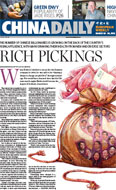Fiction as truth
Updated: 2011-03-11 10:42
By Chitralekha Basu (China Daily European Weekly)
When Jessica Rudd wrote Campaign Ruby, she never thought that work of imagination would play out in real life
 |
| Jessica Rudd, who has close ties with China, says she will certainly write a book about China. Zhang Tao / China Daily |
Jessica Rudd has memories of trying to assist a Chinese cook make dumplings at age 3, at her Beijing home in one of the diplomatic enclaves around Ritan Park. This was in the mid-1980s when her father, former Australian prime minister Kevin Rudd, was serving at the Australian embassy in Beijing.
Her return to Beijing in August 2009 also led to an outburst of creative talent, albeit in an altogether different direction.
Rudd, 27, a Canberra-born, Brisbane-raised ex-lawyer, ex-campaign worker, ex-PR, is now the author of a much-loved book about a young single London-based investment banker who gets fired in the wake of massive retrenchments, lands up in Australia quite by mischance only to be sucked into the campaign circus leading to the federal elections.
Campaign Ruby is basically a clumsy and clueless (if also inordinately compassionate) Ruby Stanhope's wild romp around Australia in three weeks - a frenetic, whistle-stop tour through its metros, small towns, beaches, valleys and deserts. It is a delectable page-turner that comes with a tight plotline, dramatic reversals, endearing characterization and, primarily, the ability to evoke laughter without malice.
Set against a backdrop of realpolitik, Campaign Ruby has, admirably, managed to steer clear of people from real life. Rudd has created a cast of recognizable character prototypes - the unscrupulous spin doctor, the mendacious journalist, the poster-girl election candidate and so on - and yet has never been accused of character assassination.
"I did not pick real political characters, only tried to show how politics works," she says, flashing her trademark wide, disarming smile (she is blonde and extremely glamorous, even without a pair of Louboutins that Ruby is always fantasizing about). "The book was out in August and no one's complained since."
Ruby, of course, is recognizably Rudd herself. Her story draws heavily on the experience of being a part of the election campaign that led her father to win the top job in 2007.
"I had exactly that buzz. The reality of a campaign is that you are not in control, you don't know where you're going to be next and when you're going to see the next washing machine. What drives you is the longing to make a difference," she says.
The night her father was declared the winner was "electric", she recalls, but it was also memorable because of the undertones of tragedy that the victory seemed already fraught with. She remembers outgoing prime minister John Howard's concession speech, being touched by the way his family was there to support him.
"It made me sad. I also had the sense that this was a family, not unlike mine. I had a feeling that one day it could be us, although I did not imagine it would happen quite so soon."
She was heartbroken, when her imagined sequence of events leading to the sudden resignation of the sitting prime minister engineered by his ambitious female deputy seemed almost clairvoyant in anticipating the future. In June 2010, Australian Labor Party deputy leader Julia Gillard challenged the leadership of Kevin Rudd, who stepped down soon after.
"I was mortified by the course of events, at the possibility that people could say I wrote this on purpose to milk money out of it," Rudd says.
Her family and publisher rallied round her, assuring her she did not actually bring on the disaster by imagining it. Her father, who must have been still hurting from a career setback, surprised her with his show of support at the launch.
"I had expected him to say if I wasn't wasting my time and my qualification in law, but he encouraged me all the way through."
But then, Kevin Rudd, now Australian foreign minister, and Jessica Rudd, his first-born, have always shared a very close and deep understanding of each other.
Years ago he would pick up the Jessica as a child when she got agitated and make her run her fingers across the spines on bookshelves to soothe her nerves. "I guess that's where I learned that books could be a source of comfort."
It is this basic idea that drives her writing. "I want to bring as much joy to the reader as I had writing the story," she says.
Her protagonist Ruby, who will soon return in a sequel, is almost like a real presence in Rudd's life, sitting by her side in the bar on the 35th floor of a high-rise, always awash with sunlight, "even on a soupy day". A quiet corner of the bar doubles as her office. Here Ruby is in charge, sharing the fun things that keep happening in her life, prodding Rudd to catch up with the next deadline.
Even when Ruby is talking about disasters in her life (like getting her Blackberry flushed in an automated toilet or launching into an inadvertent striptease in the rear seat of a cab to change into formals before meeting the leader of the opposition), "you can sense she's laughing inside," says her creator. "And when she is not, she is making others laugh. I would much rather people laughed over my book than cried."
Expectedly, Ruby Stanhope's love of the red-soled Louboutins, avocado-scented shaving gels, beefcake journalists and writing to-do lists, has bracketed her with the other favorite messed-up singleton heroines of chick lit - Bridget Jones (created by Helen Fielding) and Carrie Bradshaw (by Candace Bushnell).
Rudd does not mind the chick lit tag that essentially denotes superficial stories about women obsessed with career, fashion and hooking a guy.
"I embrace the genre," she says. "I don't think anybody should be apologetic about it. For crying out loud, these are stories about contemporary women."
She also sees an anti-woman bias in "putting down the truth about what women go through".
"If Bridget and Carrie were men, buying fancy phones and iPads, I doubt if readers would still find fault with them."
The man in her life, Albert Tse - a Chinese-Australian who worked in her father's office once - is, of course, extremely supportive. It is his job, as an investment banker, that has brought Rudd to Beijing. As a child she would often "eavesdrop" to hear her father speak Mandarin, and now that she is back in Beijing somehow ties up with the Chinese associations that keep recurring in her life. It's just that she is yet to write about them.
Tse had asked her if the character of Luke, the super-efficient, if sloppily-dressed, closet-romantic chief of staff of the opposition leader's office, was modeled on him. No, says Rudd. "Luke's lovely but Albert's lovelier."
She would, surely, write her China book some day. It's too much of a heady experience being in China, she says, and cites digging into a mountain of chicken wings at the local wet market and holding them up for examination against light, or getting drawn into the dating frenzy on TV and rating the candidates' chances with mom-in-law.
"It would be such a waste not to (write about them)," she says.
She also hopes to acquire a pair of red-soled Louboutins, a brand she follows on Twitter. "I would like to hang these from the ceiling like a chandelier, bring them down at times to admire and put them back again. Sometimes I might also wear them."
E-paper

City of Joy
Welcome to the 'world of smiles' where life meanders slowly.
Debate on nuclear power revived
The future is now
Common approach
Specials

Beloved polar bear died
Berlin's beloved polar bear Knut, an international star died Saturday.

Panic buying of salt
Worried Chinese shoppers stripped stores of salt on radiation fears.

'Super moon'
The "Super Moon" arrives at its closest point to the Earth in 2011.
